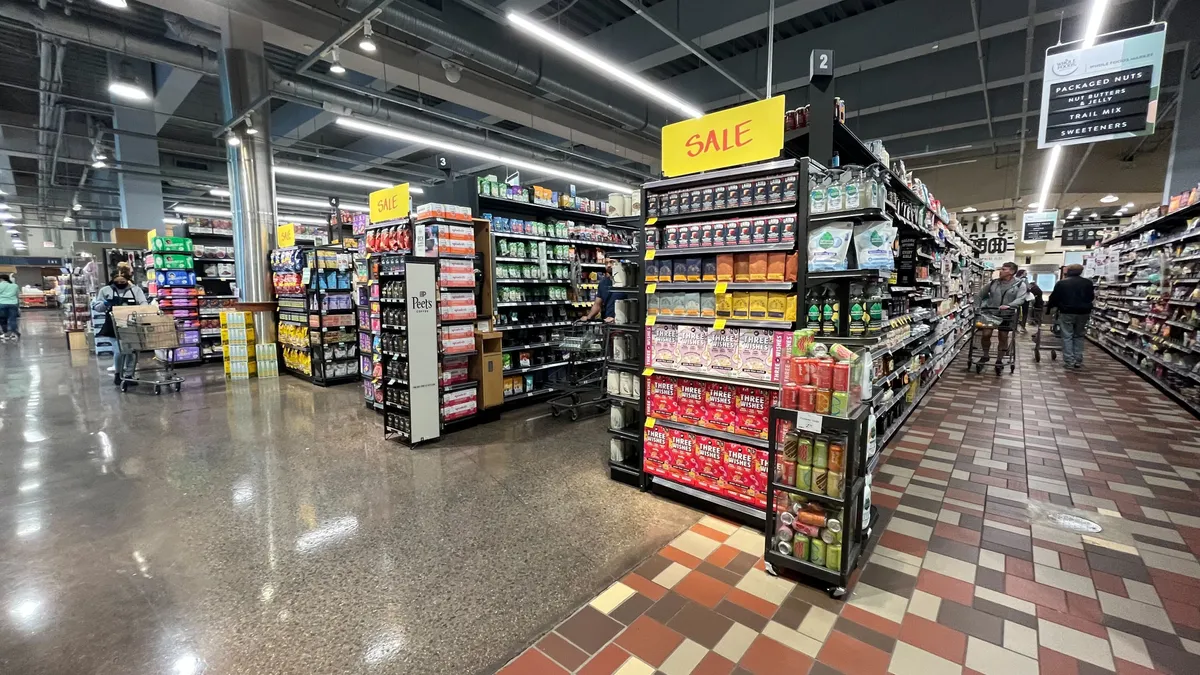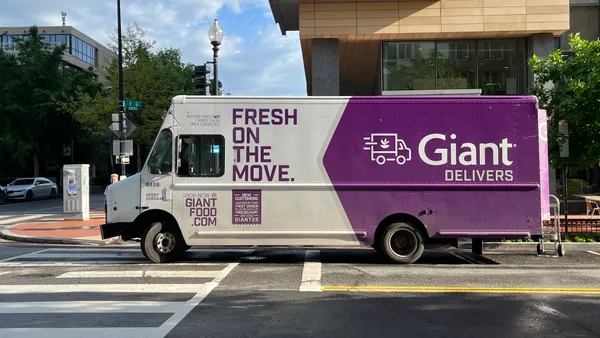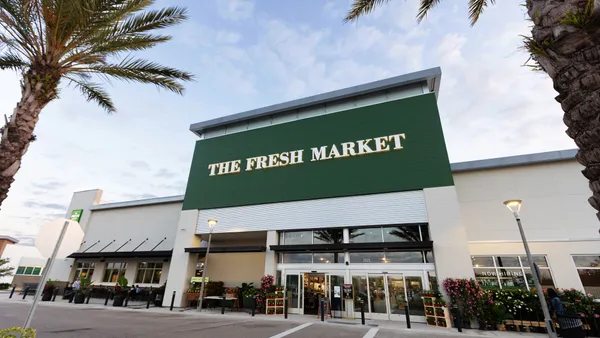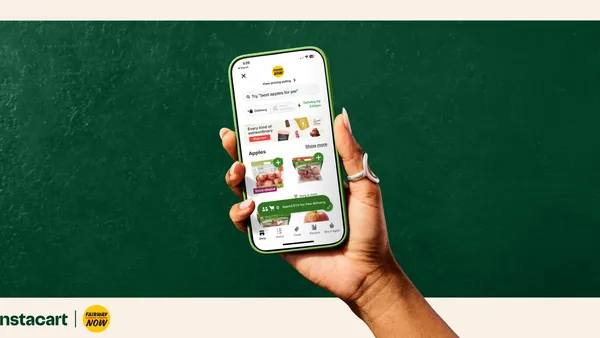Dive Brief:
- Almost one-quarter (23%) of Americans sought out local, small-scale food retailers this year and 14% of shoppers have researched women- or minority-owned establishments, according to Instacart’s "New Year, New Cart" 2021 grocery trends report published Thursday.
- The report, which compiled results from a survey of 2,050 adults in the U.S. by The Harris Poll, as well as Instacart purchasing data, found that shoppers ordering groceries during the workday is up 32%, sales for alcohol-free spirits is up 195% and sales of items marketed as "Keto" are up 72% from 2019.
- Instacart’s findings indicate that consumers are making shifts in their shopping habits as a result of the pandemic and the protests this year focused on racial injustice.
Dive Insight:
Instacart’s "New Year, New Cart" report reveals a host of behavioral shifts in grocery — some well-established and others unexpected.
The platform’s finding that more of its customers are shopping online during weekdays underscores how remote work has fundamentally altered shopping schedules. Twenty-two percent of consumers surveyed said they've shifted from weekend to weekday shopping, and the share of Instacart orders placed on weekdays increased 8% platform-wide this year. Nearly half of those surveyed (47%) said they prefer to cook most, if not all, of their meals at home.
As Instacart records greater consumer investment in local, women- and minority-owned businesses, the platform is adapting by expanding its partnerships with small and regional retailers. Based on Instacart's tracking of high-performing brands, the e-commerce platform says a few women- and minority-owned to keep an eye on next year include allergen-free cookie company Partake Foods, heirloom corn snacks business Pipcorn and premium whiskey company Uncle Nearest.
The addition of 125 small- and medium-scale grocers, like Vallarta Supermarkets in California and Caputo's Fresh Markets in the Chicago metropolitan area, to Instacart this year reflects a broader strategy taken by similar online platforms like DoorDash and Uber Eats of altering their commission models to accommodate mom-and-pop restaurants and grocers.
Laurentia Romaniuk, Instacart’s trends expert and a senior product manager, noted that the report demonstrated “an increase in brand mindfulness, as the cultural shifts of 2020 make their way into consumer purchasing decisions in the grocery aisles."
As many shoppers experiment with new recipes, some ingredients that have generated buzz have seen major year-over-year sales gains such as piri piri sauce (725%), Lao Gan Ma (227%), anchovies (85%) and za’atar (39%), according to Instacart. Turmeric, a popular antioxidant and anti-inflammatory spice that was highlighted in the trend predictions by The Fresh Market and Natural Grocers, recorded an 18% sales jump on Instacart.
In nutrition trends, a high-fat and low-carb ketogenic diet seems to be the one to beat, as Instacart recorded a 72% uptick in sales of "Keto" products in 2020, which it expects to continue to grow into 2021. The report noted that 82% of survey respondents claimed that they are “at least trying” to stick to their new diets.
Meanwhile, searches for hard seltzer and hard kombucha saw 519% and 320% upticks, respectively, this year on the platform. Alcohol-free spirits also had a very strong year on the platform with sales jumping 195% from 2019.
Despite its demographic skewing younger than the average shopper, Instacart’s grip on online grocery, which outpaced Walmart to capture more than half of the market earlier this year, makes its shopping data relevant to retailers across the industry.












